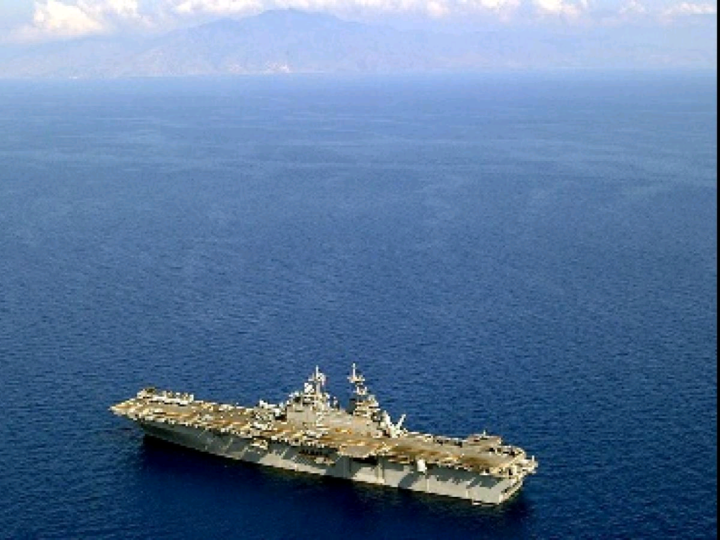China designs to dominate the South China Sea might involve breaking international law of the seas in the region. The call for readiness for “people’s war at sea” last year by China’s Defense Minister, General Chang Wanquan is a case in point.

James Holmes, writing in The National Interest said that the purpose of such a campaign was to “safeguard sovereignty” after an adverse ruling from the International Tribunal for the Law of the Sea.
Earlier, the tribunal of the UN Convention on the Law of the Sea (UNCLOS), upheld the ruling that Beijing’s claims to “indisputable sovereignty” spanning some 80-90 per cent of the South China Sea are bunk.
A strong coastal state, in other words, cannot simply wrest away the high seas or waters allocated to weaker neighbours and make them its own. It could conceivably do so through conquest, enforced afterwards by a constant military presence, wrote Holmes.
But Beijing prefers to get its way without fighting. Fighting, though, could be the least bad of the options party leaders have left themselves. Judging from Chang’s words, small-stick diplomacy has run its course.
Small-stick diplomacy was about deploying the China Coast Guard and fellow non-military sea services to police waters Beijing claimed. It depicted China’s sovereignty in the South China Sea as a fact, and dared woefully outmatched rivals to reverse that fact, reported The National Interest.
The UNCLOS tribunal struck China’s approach a grievous blow, collapsing the quasi-legal arguments underlying small-stick diplomacy. The tribunal’s decision makes it clear that Chinese maritime forces operating in, say, the Philippines’ exclusive economic zone are invaders or occupiers–not constables.
If Beijing can’t get its way through white-hulled coast-guard vessels, that leaves the military force. Chang’s warlike talk implies that Beijing has abandoned the softly, softly approach and has tacitly admitted Southeast Asia constitutes a contested zone, reported The National Interest.
It appears China now sees the South China Sea as an offshore battleground where rivals must be overcome by force, said Holmes. Beijing won’t withdraw the coast guard, maritime enforcement services, or the fishing fleet–an unofficial militia–from embattled waters.
They will stay on as part of a composite whole-of-government armada. But the People’s Liberation Army (PLA) Navy and Air Force will figure more prominently in the force mix. In all likelihood, Chinese commanders will flourish the big stick more promiscuously in the future–rendering the threat overt and visible rather than latent and unobtrusive, said Holmes.
A people’s-war-at-sea strategy will confront a motley coalition in which outsiders–America, maybe joined by Japan or Australia–supply the bulk of the heavy-hitting combat power. The Philippines is lopsidedly outgunned. Vietnam has pluck and a formidable military, but it can hardly stand up to the northern colossus without help, reported The National Interest.
But, the people’s war is about outlasting stronger foes. Even, if the weak contender is China then also its chances are bright. It is endowed with sizable reserves, its armed forces will protract the campaign, both to gain time to muster more strength and to wear away at enemy combat strength, said Holmes.
In short, China could win even if it remains weaker than America in the aggregate. The PLA could narrow or reverse the balance of forces in the theatre–overpowering the US contingent at the place and time that truly matter. It could dishearten Washington.
As per Holmes, China is politically and strategically predictable in the South China Sea yet operationally and tactically unpredictable. Politically and strategically predictable because party leaders painted themselves into a corner with domestic constituencies. Tactically unpredictable because that’s how Chinese forces have fought since the age of Mao.
To prosecute it, Chinese commanders seek out isolated enemy detachments they can assault on “exterior lines,” encircling and crushing them. The cumulative effect of repeated tactical setbacks wears down the strong–and could prompt their leadership to question whether the endeavour is still worth its hardships, perils, and costs.
If not, cost/benefit logic will prod US leaders toward the exit–and China will prevail even without an outright victory over allied forces, reported The National Interest.
So, US and allied mariners and airmen, accordingly, must study China’s martial traditions, gleaning insight into how the offshore active defence might unfold in the South China Sea, advised Holmes.
Support InfoStride News' Credible Journalism: Only credible journalism can guarantee a fair, accountable and transparent society, including democracy and government. It involves a lot of efforts and money. We need your support. Click here to Donate